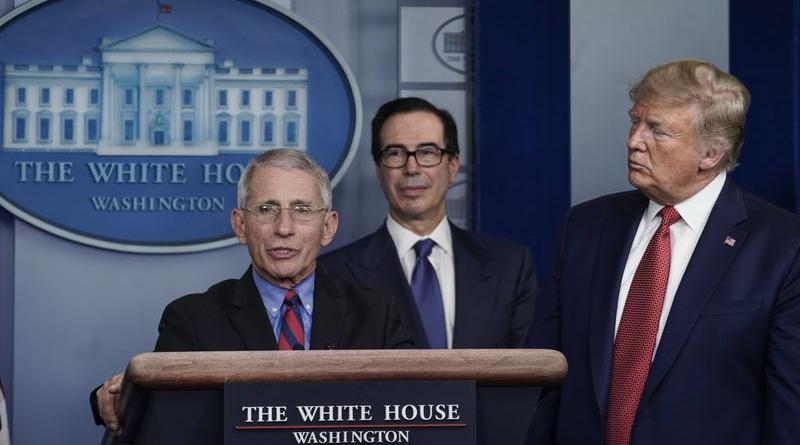Cost-Benefit Analysis in the Time of Coronavirus and Climate Change.

Like climate economics, the economics of Covid-19 mean we need to take aggressive action, not incremental steps.
As a climate economist, I’m used to being called a living, breathing oxymoron: “Which is it? Climate or economy? Pick your side!” It can’t possibly be both. Turns out, of course, it very much can. Economists have studied climate for decades. While it has taken a while for economists to catch up with climate scientists to incorporate the latest science and to sound the alarm bells on the world’s woeful lack of action, the verdict, by now, is clear: Cut CO₂ pollution to far below where it currently is to protect lives and livelihoods alike.
Fast forward to Covid-19, when everything is happening much faster. It also hits home much more directly—not least because my wife is a gynecologist at NYU Langone Medical Center and Bellevue, New York City’s oldest public hospital and one at the epicenter of the City’s pandemic response.
With Covid-19, too, talk has shifted quickly to how “economists” or “economics” supposedly butt heads with public health. The truth is anything but.
Editorials in The Wall Street Journal pitted public health against economic health, declaring California and New York’s stay-at-home orders “unsustainable" and decrying the jobless benefits of the $2 trillion economic relief bill as discouraging work. They also decried the “censorship” of those disagreeing with economic lockdowns—a perennial hobbyhorse of the Journal's editorial board—while seeking salvation in “private research and innovation”—emphasis on “private.” With some notable exceptions, its opinion writers, too, focused on how the costs are too large or how everything is just too uncertain.
Uncertainties are indeed large, especially given the lack of testing. As is usually the case with benefit-cost analyses of government policies, the costs are relatively well defined and both measurable and monetizable. The benefits are much more difficult to size. That has never stopped economists from trying.
Covid-19 has prompted a slew of benefit-cost analyses—from quick Twitter takes, to blogs, to rapid turn-around epidemiological-economic models. The verdict in virtually all of them is clear: shutting down the economy to contain the spread of the virus is worth the costs. There is also convincing evidence from the 1918 flu that it is pandemics that depress the economy, not public health interventions.
Benefit-cost analyses are well-established regulatory best practice. While controversial at the time, Ronald Reagan’s 1981 executive order establishing the practice as a criterion for all major government rules and regulations has withstood the test of time. It is firmly grounded in the utilitarian school of thought: the greatest good for the greatest number of people.
That doesn’t make effective Covid-19 responses a zero-one decision: complete shutdown or none at all. There are degrees of social—or better, physical—distancing. More sophisticated models are now appearing that analyze the degree of shutdown, arriving at the same conclusion as the more blunt benefit-cost analyses: containing Covid-19 is worth the cost.
Large uncertainties remain—leading to an enormous value in quickly expanding testing—but, in the end, rapid exponential growth dwarfs all. (After all, both cases and deaths in the United States still double every three days.)
How then did there ever appear an apparent rift between economic and public health?
In short, thanks to ideologues and wishful thinking. Ideology, though, has to be pushed rather far to support the notion that it's public health vs. the economy. Even an American Enterprise Institute working paper arrives at the same standard conclusion as the rest of the economics profession.
One truly has to start at the ideological deep end to conclude that physical distancing cannot be the answer to Covid-19. The fulcrum of this fringe appears to be New York University School of Law professor and Hoover Institution fellow Richard A. Epstein. His analysis, “Coronavirus Perspective,” apparently found wide circulation among President Trump’s inner circle.
Epstein, too, could not escape the reality of unmitigated exponential growth. On March 16, when his post was published, he counted 67 U.S. deaths and argued that they “should reach about 500.” On March 23, he wrote a new post, “Coronavirus Overreaction,” which predicted “about 2,000-2,500 deaths.” On March 24, he “corrected” his earlier post by revising his number to 5,000. He has since added a further post warning of “The Grim Costs of Total Lockdowns.” None of his three pieces escapes his ideology.
It should come as little surprise that Epstein also plays down the evidence of climate change. In both cases, the basis of his arguments appears to be that if any kind of governmental policy is the most sensible answer, the problem must not exist.
Denying basic physics and chemistry will not make the climate problem disappear, as much as attempting to reinterpret biological and medical realities isn’t going to make Covid-19 go away. In both cases, the economics, too, point in one and only one direction. Economics 101 supports the fundamental conclusions of climate science, much like it supports the fundamental epidemiological conclusions in the case of Covid-19.
Gernot Wagner writes the Risky Climate column for Bloomberg Green. He teaches at New York University and is a co-author of Climate Shock. Follow him on Twitter: @GernotWagner. This column does not necessarily reflect the opinion of Bloomberg LP and its owners.
1 April 2020
Bloomberg Green




